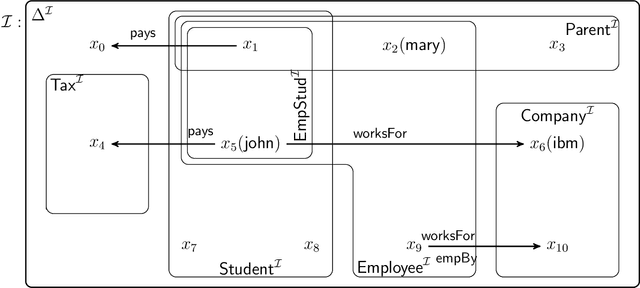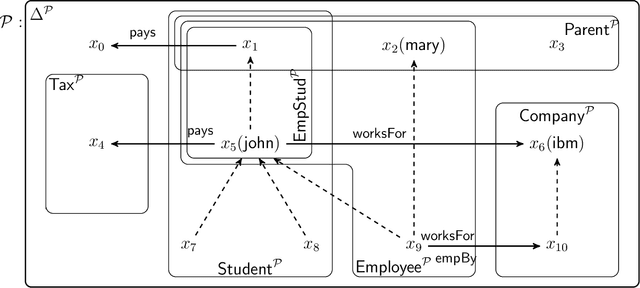Katarina Britz
A Conceptual Model for Attributions in Event-Centric Knowledge Graphs
Mar 05, 2025Abstract:The use of narratives as a means of fusing information from knowledge graphs (KGs) into a coherent line of argumentation has been the subject of recent investigation. Narratives are especially useful in event-centric knowledge graphs in that they provide a means to connect different real-world events and categorize them by well-known narrations. However, specifically for controversial events, a problem in information fusion arises, namely, multiple viewpoints regarding the validity of certain event aspects, e.g., regarding the role a participant takes in an event, may exist. Expressing those viewpoints in KGs is challenging because disputed information provided by different viewpoints may introduce inconsistencies. Hence, most KGs only feature a single view on the contained information, hampering the effectiveness of narrative information access. This paper is an extension of our original work and introduces attributions, i.e., parameterized predicates that allow for the representation of facts that are only valid in a specific viewpoint. For this, we develop a conceptual model that allows for the representation of viewpoint-dependent information. As an extension, we enhance the model by a conception of viewpoint-compatibility. Based on this, we deepen our original deliberations on the model's effects on information fusion and provide additional grounding in the literature.
Theoretical Foundations of Defeasible Description Logics
Apr 16, 2019

Abstract:We extend description logics (DLs) with non-monotonic reasoning features. We start by investigating a notion of defeasible subsumption in the spirit of defeasible conditionals as studied by Kraus, Lehmann and Magidor in the propositional case. In particular, we consider a natural and intuitive semantics for defeasible subsumption, and investigate KLM-style syntactic properties for both preferential and rational subsumption. Our contribution includes two representation results linking our semantic constructions to the set of preferential and rational properties considered. Besides showing that our semantics is appropriate, these results pave the way for more effective decision procedures for defeasible reasoning in DLs. Indeed, we also analyse the problem of non-monotonic reasoning in DLs at the level of entailment and present an algorithm for the computation of rational closure of a defeasible ontology. Importantly, our algorithm relies completely on classical entailment and shows that the computational complexity of reasoning over defeasible ontologies is no worse than that of reasoning in the underlying classical DL ALC.
 Add to Chrome
Add to Chrome Add to Firefox
Add to Firefox Add to Edge
Add to Edge